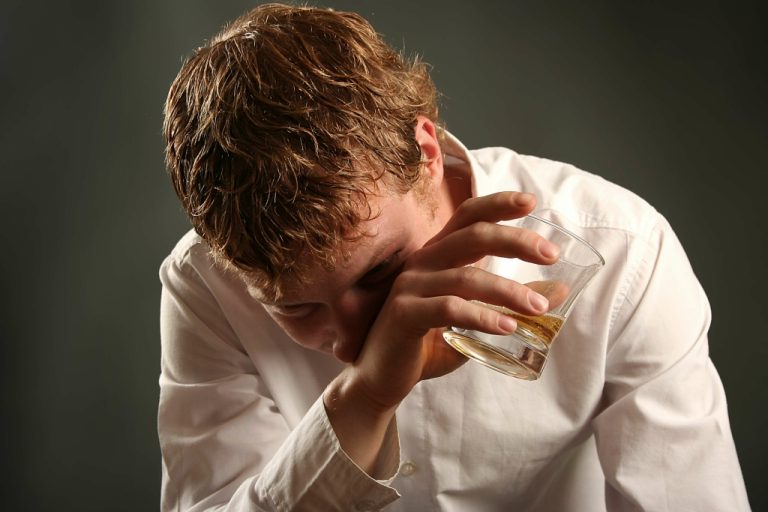Content
Studies have not yet consistently established a cause-and-effect relationship, but the consensus is that drinking higher-than-moderate amounts of alcohol can contribute to weight gain. https://ecosoberhouse.com/ Besides testosterone, alcohol use can also increase the levels of cortisol in your body. Cortisol is the hormone you release when you’re stressed and has been linked to weight gain.
- Otherwise, keep reading as we look at the three ways alcohol can lead to higher body weight, waistline, and health problems in the long term.
- If you’ve tried to cut back on drinking before and found it difficult, you might have a drinking problem.
- He provides individual therapy, group therapy, and assessments for clients in recovery from substance use and any related mental health issues.
- A night out with several drinks can lead to consuming a few hundred extra calories.
- First, it has been found that alcohol intake increases energy expenditure, likely due in part to the fact that it has a high thermogenic effect .
Loss of muscle mass also decreases with age and women may see an increase in belly fat even when they aren’t gaining weight. This occurs as a result of decreasing levels of estrogen which influences where fat is stored in the body. Alcohol may make it easier to fall asleep, but once you are asleep, alcohol will prevent your brain from reaching the deep, regenerative sleep you need to feel fully rested.
Weight loss and alcohol
Alcohol drinking frequency in relation to subsequent changes in waist circumference. The association of lifetime alcohol use with measures of abdominal and general adiposity in a large-scale European cohort. Despite containing a lot of energy, alcohol also doesn’t have the same satiating effect as solid food. Some folks are more prone does alcohol make you gain weight to weight gain than others, though. Our stories are reviewed by medical professionals to ensure you get the most accurate and useful information about your health and wellness. This article was medically reviewed by Kailey Proctor, MPH, RDN, CSO, a board-certified oncology dietitian at City of Hope Orange County in Irvine California.

Another important confounding factor to be considered is physical activity level. Furthermore, beer and spirit drinkers appear to have poorer dietary habits in general than wine drinkers [3•]. Thus, accounting for both sides of the energy balance equation is crucial to evaluate adequately the association between alcohol intake and obesity. Overall, obesity is a multi-factorial condition and it is difficult to truly assess the independent influence of alcohol intake on obesity risk.
The Truth About Beer and Your Belly
Since alcohol is empty of calories, individuals commonly eat more while drinking. Heavy drinkers have been known to skip meals and drink only, therefore losing weight instead of gaining it. The speed of your metabolism determines how many calories you burn when your body is at rest (i.e. sitting and sleeping).

For reference, a lite beer has 29 calories compared to a regular brew that has 150 calories. Although certain types of alcohol may potentially have health benefits, they are still at the bottom of the priority list for managing your health. If you really want to get enough polyphenols and antioxidants, focus on proven heart-healthy foods such as fresh fruit and colorful vegetables. A person who is regularly physically active and eats a balanced diet will metabolize five glasses of wine differently than an individual who is mostly sedentary and who consumes a highly-processed diet. Testosterone also plays a key role in gaining lean muscle and burning fat.
Related MedlinePlus Health Topics
It seems beer drinkers across the globe have a tendency to grow bellies, especially as they get older, and especially if they are men. Drinking and weight loss have never really gone hand-in-hand. Maybe it’s because we’re so familiar with the concept of a “beer gut” or maybe it’s because that third vodka-cranberry makes us 70% more likely to make the Uber driver stop for Taco Bell our way home from the bar. The mission of Northeast Addictions Treatment Center is to provide the best continuum of care for not only adult men and women struggling with addiction, but also their families.
Though you may have heard the term “beer belly” before, Maurin said the belief that alcoholic beverages cause increased fat stores around the stomach area isn’t accurate. In fact, a very small percentage of the calories you drink from alcohol is turned into fat. “The main effect of alcohol is to reduce the amount of fat your body can burn for energy,” Maurin explained. “You are basically shutting down your metabolism, which then leads to weight gain.” If you are trying to lose weight, you can boost your efforts by cutting back on alcoholic drinks. Some mixed drinks can contain as many calories as a meal, but without the nutrients.
